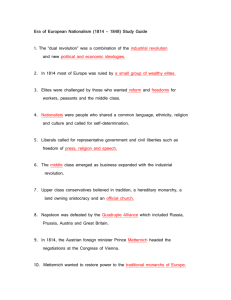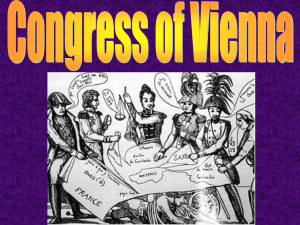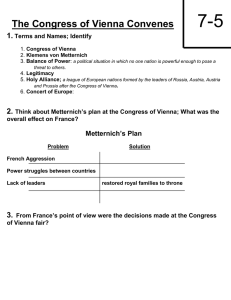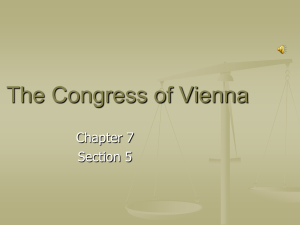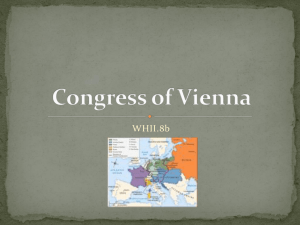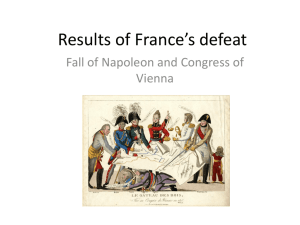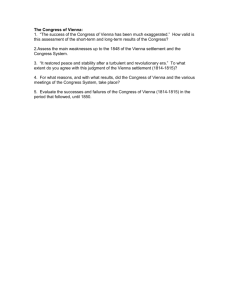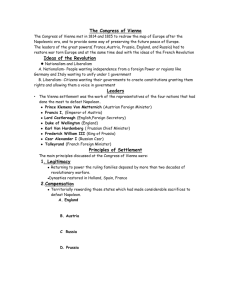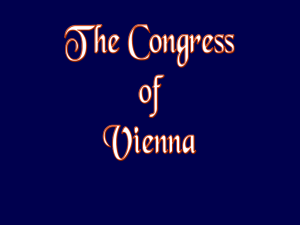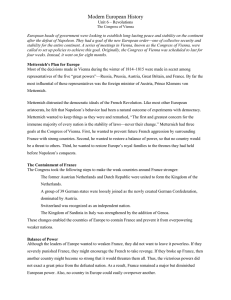Era of European Nationalism (1814 – 1848) Study Guide
advertisement
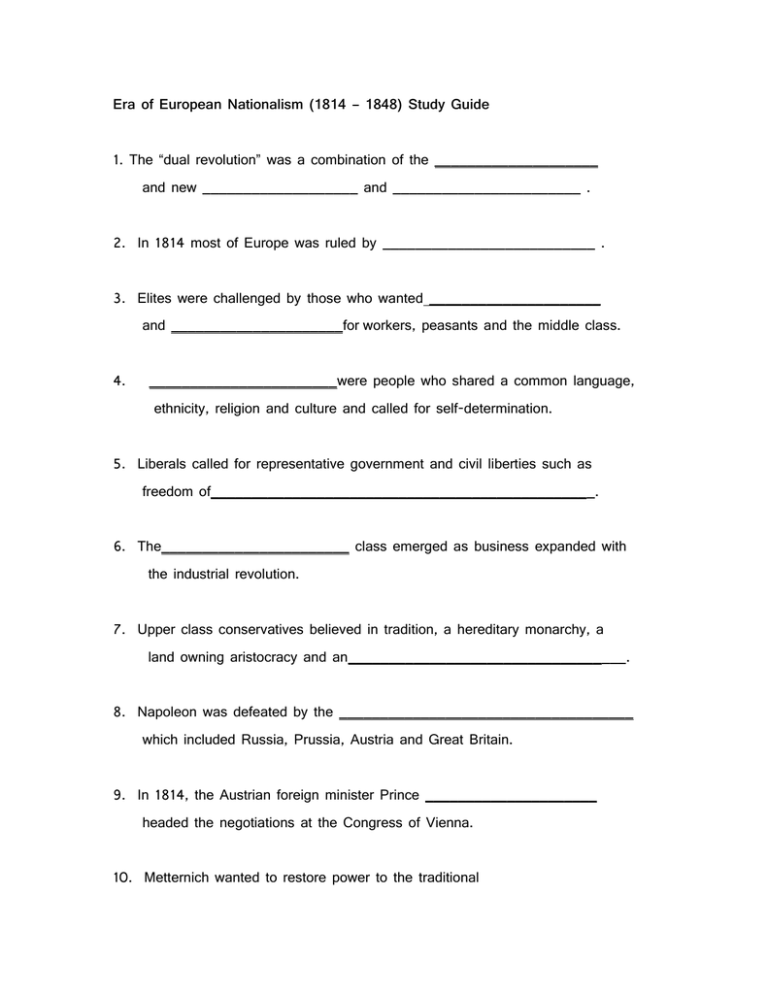
Era of European Nationalism (1814 – 1848) Study Guide 1. The “dual revolution” was a combination of the ____________________ and new ___________________ and _______________________ . 2. In 1814 most of Europe was ruled by __________________________ . 3. Elites were challenged by those who wanted _____________________ and _____________________for workers, peasants and the middle class. 4. _______________________were people who shared a common language, ethnicity, religion and culture and called for self-determination. 5. Liberals called for representative government and civil liberties such as freedom of_______________________________________________. 6. The_______________________ class emerged as business expanded with the industrial revolution. 7. Upper class conservatives believed in tradition, a hereditary monarchy, a land owning aristocracy and an__________________________________. 8. Napoleon was defeated by the ____________________________________ which included Russia, Prussia, Austria and Great Britain. 9. In 1814, the Austrian foreign minister Prince _____________________ headed the negotiations at the Congress of Vienna. 10. Metternich wanted to restore power to the traditional ________________________________________. 11. The negotiations as the Congress of Vienna lasted ___________________. 12. The first and foremost accomplishment of the Congress of Vienna was to recreate a _________________________between the nations of Europe. 13. The second accomplishment was to create barriers against future French ________________________ . 14. The Congress of Vienna redrew the map of Europe in order to reward the victors and discourage France from________________________________. 15. Britain was especially rewarded by the Congress of Vienna because Britain had never __________________________________ . 16. Following the Congress of Vienna the Great Powers set up the ___________________________________ to preserve the peace. 17. The Russian czar set up the _______________________________along with Prussia and Austria who agreed to govern their nations by Christian principles. 18. The system of periodic meetings between the Great Powers of Europe, known as the _____________________________________was successful in preserving the terms of the Congress of Vienna for most of the 19th century. 19. The Metternich system tried to suppress the _______________________ and _____________________________ ideas of the dual revolution. 20. People of the lower classes in the early 19th century suffered from extreme ____________________________. 21. According to classic political liberalism the people must have ________________________ government. 22. Many liberals believed that ___________________________________ should be attached to the right to vote. 23. The first person to describe the economic demands of liberals was the Scottish philosopher _________________________. 24. Smith advocated __________________________________ which encouraged individuals to compete freely in the marketplace. 25. British businessmen used Smith’s laissez-faire doctrine to justify _________________________________________ . 26. The feeling of nationalistic pride could turn dark when some groups began to feel ___________________________to other groups. 27. The _________________________movement in art flowered alongside new political ideologies. 28. Between 1820 and 1848, tension between ______________________________ and ___________________________ broke out in revolutions across Europe. 29. The Karlsbad Decrees of 1819 restricted ____________________________ and suppressed ___________________________ . 30. Unlike other nationalist uprisings the_____________________ fought a successful war of independence from the Ottoman Empire. 31. Like the Greeks, the______________________________ were successful with the help of Britain and France. 32. Charles X wanted to restore______________________ to its pre-1789 status. 33. In an attempt to regain control of the government Charles X issued the ____________________________which dissolved the legislature and severely curtailed freedoms. 34. Under the economic theory called __________________________society as a whole would own property and operate all businesses. 35. Francois Guizot wrote that, “the social danger by which the _____________ ___________________ seems menaced is due especially to universal suffrage.” 36. In response to socialist demands, the French government set up ___________________________________ for unemployed workers. 37. The Poles were unsuccessful in their effort to gain independence from Russia because they were internally divided and they lacked support from ___________________ and ______________________. 38. The pope in Rome refused to support nationalist demands because he was afraid of offending Roman Catholic Austria. 39. In the first French elections following the Revolution of 1848, the people Overwhelmingly elected________________________________. 40. Many of the political movements of 1830 and 1848 failed because of a lack of _____________________and clear vision of their _______________________________ .
